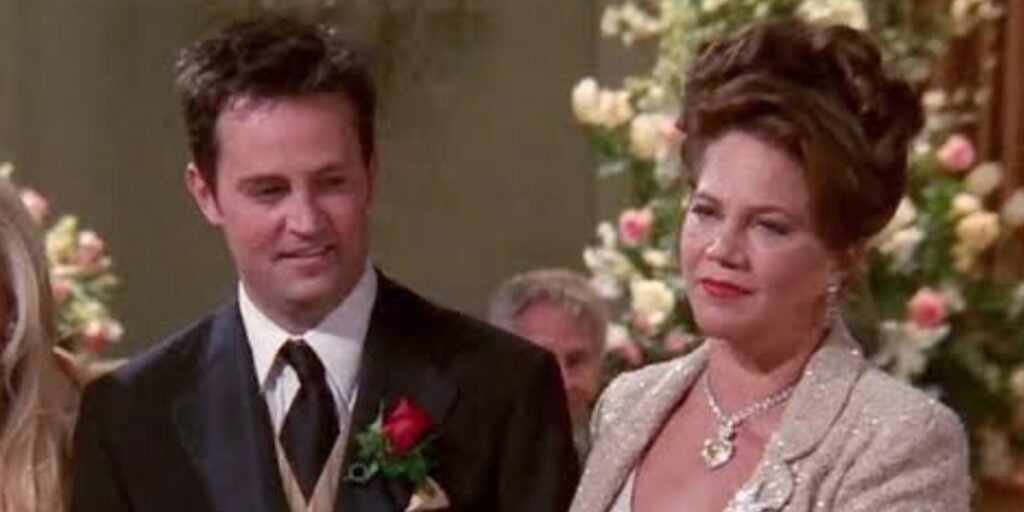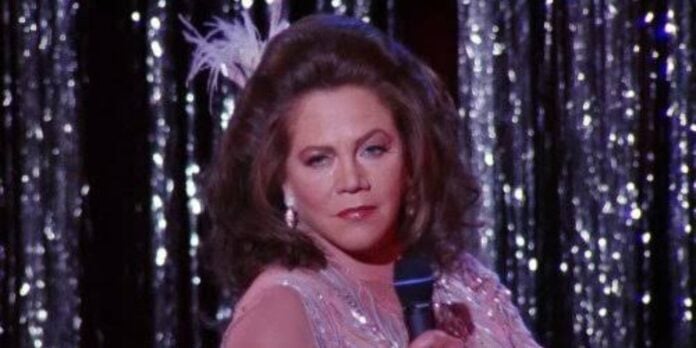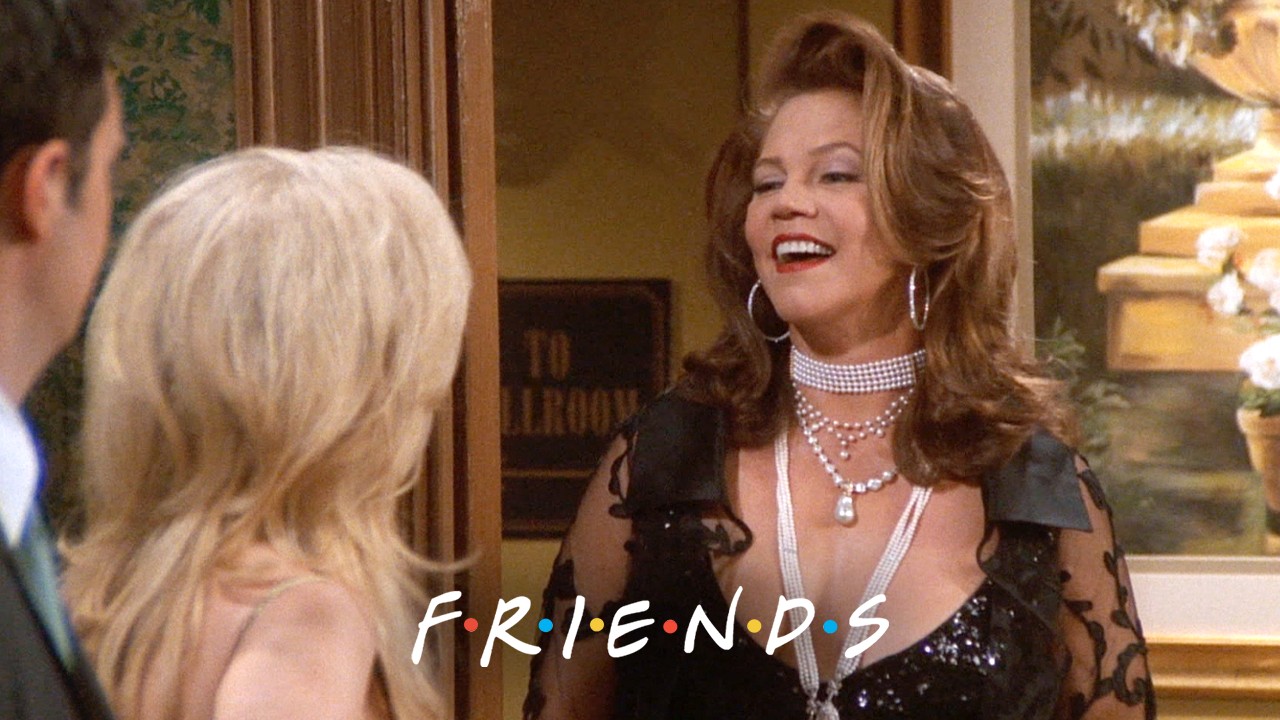In the golden age of ‘Friends,’ some moments still make us laugh out loud. But others, when revisited, make us cringe. One such instance is the introduction of Chandler Bing’s father, played by the formidable Kathleen Turner.
Once hailed as a cheeky casting triumph, Turner’s appearance as Charles Bing, a drag performer in Las Vegas known as Helena Handbasket, is now under renewed scrutiny for its mishandling of LGBTQ+ representation.
The Casting That Was Seen As Clever Back Then Backfired

When Friends aired its Season 7 finale, fans finally met the oft-mocked, long-discussed figure of Charles Bing, Chandler’s estranged father who had divorced his mom and become a Las Vegas drag performer. The writers had teased this character for seasons with tales of his performances. So when Kathleen Turner, known for her husky voice, stepped into the role, it was seen as a brilliant move.
Related: ‘Friends’: Monica Hooking Up With Character Was Totally Messed Up
Turner embraced the role, bringing charisma and comedic timing that stood toe-to-toe with the show’s beloved ensemble. It was a moment that could’ve been emotionally significant, even redemptive. However, for many viewers, especially looking back now, the portrayal didn’t hit the mark at all.
The problem wasn’t Turner herself. She did what she could with the material given to her. The real issue lay in how the character was written and more crucially, how they were framed. Was Charles Bing a gay man who performed in drag? A drag queen by identity? A transgender woman? The show never clarified.
It was simply funnier, the writers seemed to think, to keep the lines blurred. This ambiguity is now being considered careless. Throughout ‘Friends’, queerness was often the punchline. Chandler’s feminine mannerisms, Joey’s metrosexual habits, even Ross hugging another man, almost all were followed by a gay panic joke.
Chandler’s “dad,” despite being a potentially rich and heartfelt character, was flattened into another setup for an easy laugh. Even in the very episode where Helena Handbasket appears, Joey is shamed for wearing women’s underwear. Whereas, Ross is mocked for flirting with a male cop. The show didn’t just fail to explore queer identity, it actively played into tropes and reinforced stigmas.
‘Friends’ Creator Marta Kauffman And Kathleen Turner Apologized For The Storyline
Decades later, ‘Friends’ co-creator Marta Kauffman has acknowledged the missteps. In a candid interview on BBC’s The Conversation, Kauffman admitted, “Referring to her as ‘Chandler’s father,’ even though Chandler’s father was trans, that was a mistake.” She explained that, at the time, she didn’t understand pronouns or how important they were.
In case you missed it: ‘Friends’: Did Janice Deserve The Mistreatment By The Gang?
Now, she recognizes how deeply the show missed the mark. “It’s painful looking at yourself in the mirror,” she said. “I’m embarrassed that I didn’t know better 25 years ago.” It’s a rare and powerful admission, especially in an industry where many still resist accountability. Kauffman didn’t stop there. She’s since donated $4 million to her alma mater to support African and African Diaspora studies.
She acknowledged the show’s broader issues with representation. Kathleen Turner herself has also weighed in. She revealed that when she took on the role, she was told she’d be “the first woman playing a man playing a woman.” At the time, that felt like a challenge.
However, Turner is under no illusion that Friends offered any real commentary on gender identity. “It became a phenomenon,” she said, “but no one ever took it seriously as a social comment.” ‘Friends’ often wielded its influence without truly understanding the responsibility that came with it. But the show cannot be fully blamed as it was following the trend of its time.
The show had the chance to represent a trans character with dignity, humor, and complexity. Instead, Charles Bing was used to embarrass Chandler, to make the audience chuckle awkwardly, and then to be shuffled off-screen once the joke was over. For fans, revisiting ‘Friends’ now is a mix of joy and discomfort.






